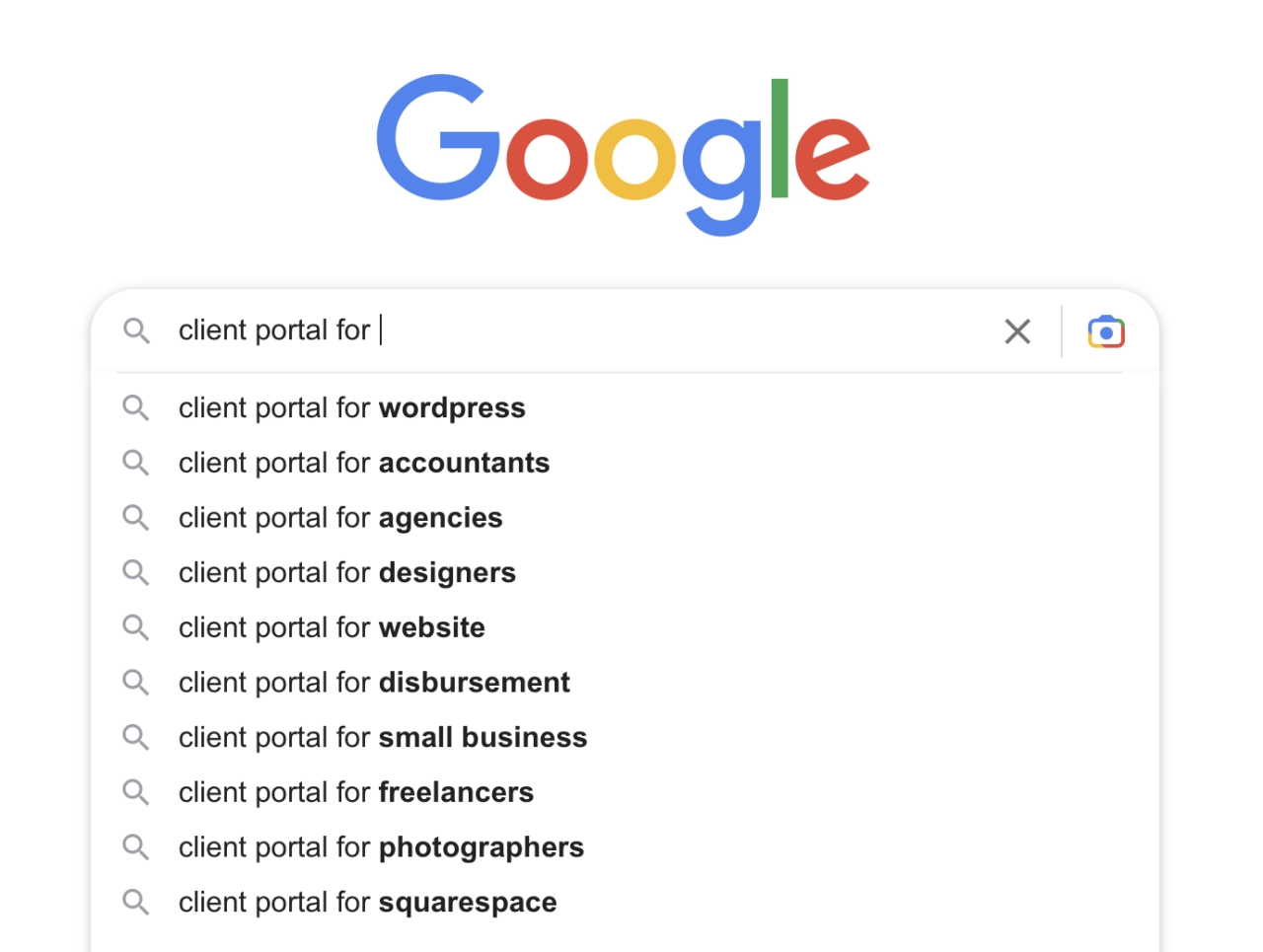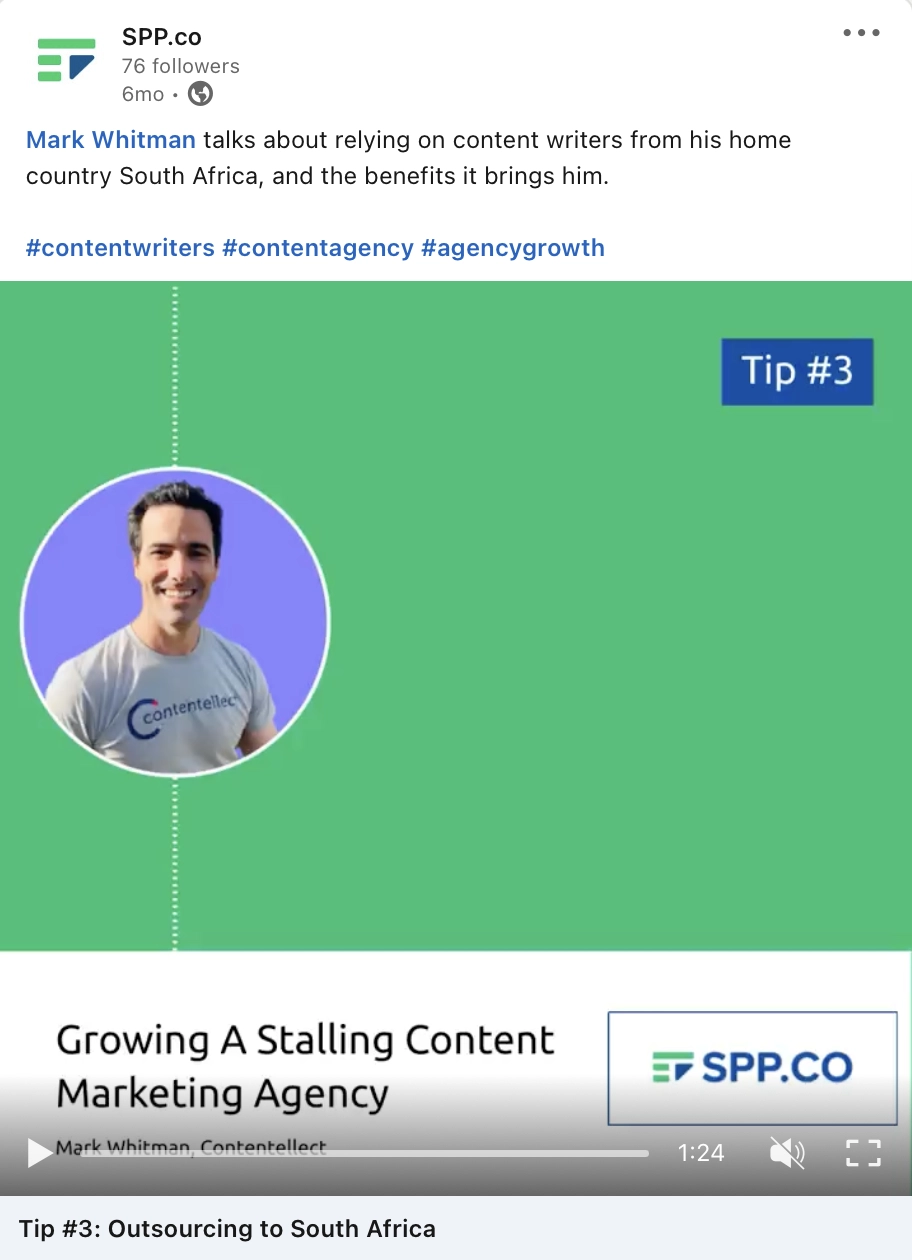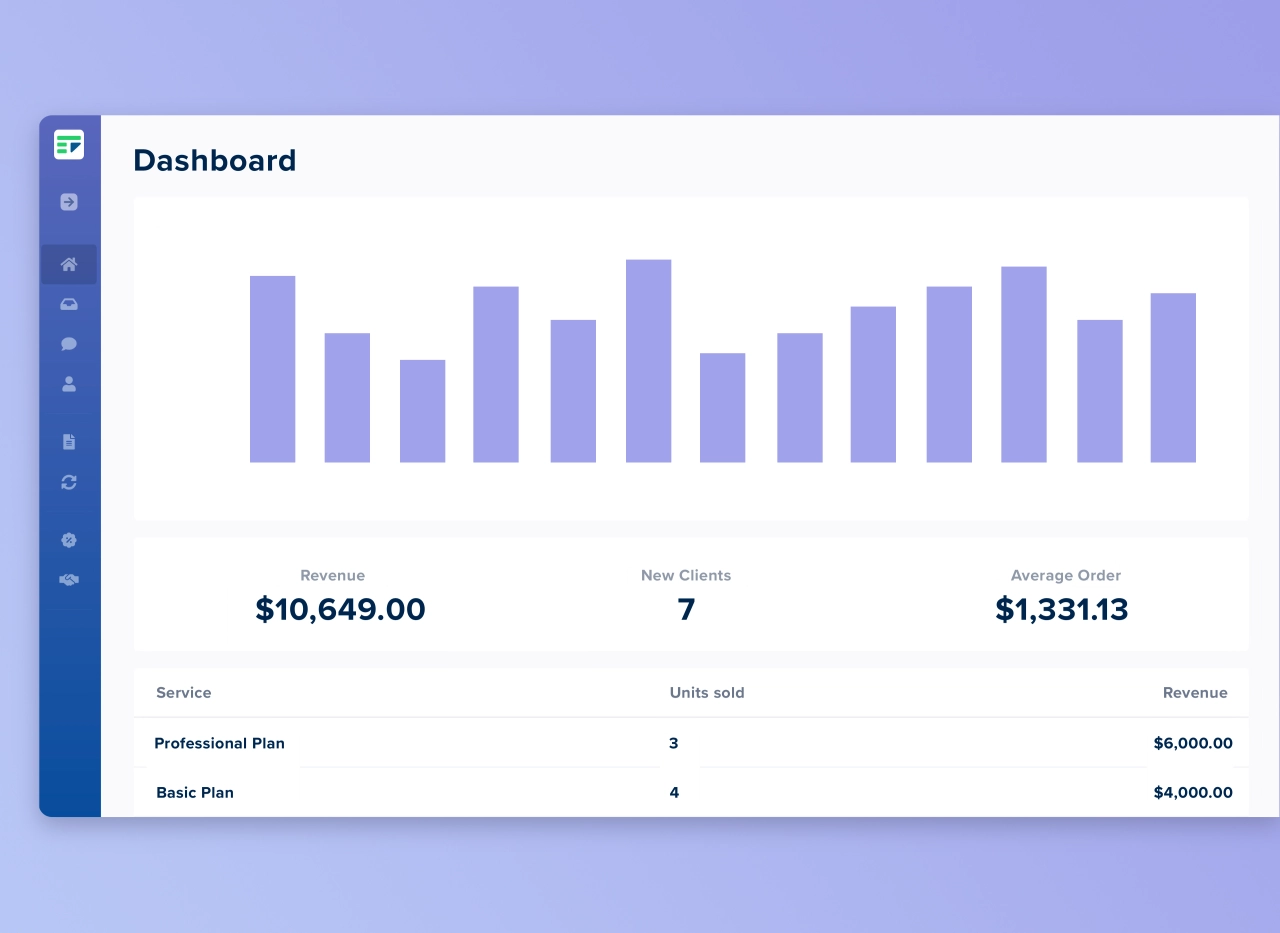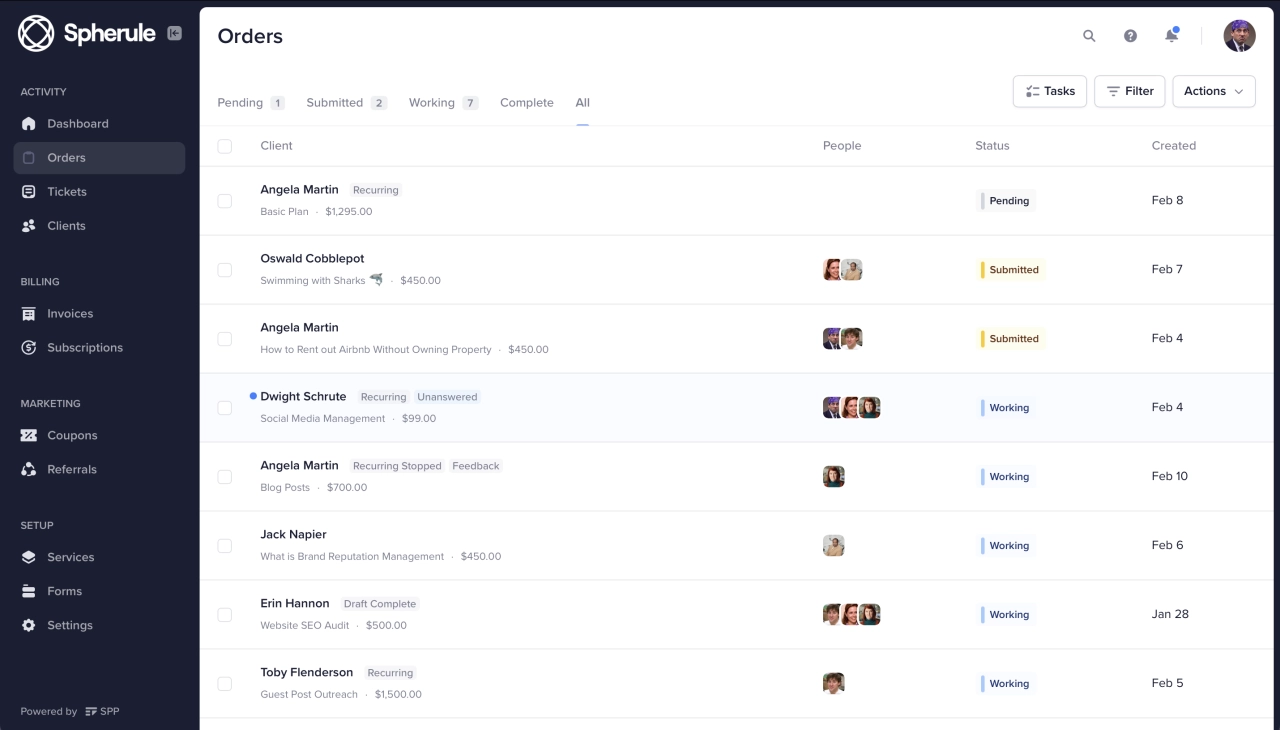- Niche content is highly specific and targeted content that is designed to appeal to a specific audience or demographic.
- Creating niche content can help businesses and publishers stand out from the competition, build a loyal following, and increase engagement and conversions.
- When creating niche content, it is important to conduct thorough research on the target audience and develop a content strategy that aligns with the overall goals of the business or publication.
The benefits of using content marketing to scale your agency cannot be overemphasized. When combined with niching, you become unstoppable. The reason isn’t far-fetched. Content creation for a niche audience will help you:
increase brand awareness
drive targeted traffic to your website
generate highly-qualified leads
gtand out from mass competitors
boost your conversion rates
But if you’re in a difficult niche, how do you create engaging content that will keep your audience engaged and encourage them to take action?
This is one question most agency owners often ask us at SPP. That’s why I’ve decided to tackle it head-on in this article. You’ll learn how to create engaging niche content.
But first, let’s take a minute to understand what a difficult niche is.
What is a difficult niche?
A “difficult niche” simply means niches or industries that are not as popular as others. Many consider them as dry, boring, complicated, or too technical. They mostly contain terms or jargon that are hard to understand.
An example is the insurance industry: while insurance products are essential, not many people are interested in reading a long piece of content about them. The same thing applies to niches like manufacturing, biotechnology, or engineering.
Also, highly regulated industries like healthcare or finance, have strict compliance requirements. Creating content for niches means you must abide by Google’s E-A-T principle. It’s one of the guidelines Google uses to determine whether your content has a high level of expertise, authoritativeness, and trustworthiness.
That’s why creating content for such niches can be a daunting task, as it requires thorough research to ensure whatever information you put out is accurate and valuable to readers.
However, this doesn’t mean your content should be boring. Even though people are searching for answers to their questions, they won’t spend time on your content if it’s hard to understand. They expect to be entertained as they are being educated.
As such, when you write content, it must be interesting enough to keep your audience engaged. Only then will they be encouraged to take action.
Let’s look at different ways you can task a content creator to tackle a specific niche.
10 effective ways to create engaging content for difficult niches
1. Write about problems your customers have
Google processes over 8.5 billion searches per day, according to Internet Live Stats. This shows how often people rely on search engine giants to get answers to their questions or solve their problems.
As such, one way to create interesting content for a difficult niche is to focus on the problems your target audience has. If you’ve niched down your business, you should know your customers well. And that allows you to create content that addresses their problems.
Now, you may be wondering: “how do I know the problems my customers have?” Here are a few ways to find out:
read customer reviews
review industry-related blogs
monitor customer support tickets
conduct surveys of existing customers
listen to sales calls and identify frequently asked questions
enter keywords in Google and check related terms

You can also look through online forums and social media platforms like Quora, Reddit, YouTube, Twitter, and Facebook groups to get an idea of the questions people are asking related to your industry.
Once you gather enough information, focus on a content niche that allows you to easily create valuable, interesting content around these problems that will resonate with your audience.
2. Show your audience how to achieve a result
Ever heard of the saying “show, don’t tell?” It works a treat when creating content for a difficult niche. Instead of focusing on your audience’s problem, you create content to show your readers how to achieve a result.
Doing this paints a mental picture in their mind, thereby allowing them to experience the result they desire. Content here can be in the form of tutorials, how-to videos, infographics, webinars, animations, etc.
But first, you must have a clear understanding of the result your audience wants before creating content to show them how they can get it.
For example, if you’re creating content in the insurance niche, you can record tutorial videos to show your audience how to compare different insurance plans before making a decision. It will be more relevant to them than providing generic information about different insurance plans. Moreso, it will position your brand as an authority in your niche. This process is called authority content marketing, and while it takes time to establish yourself as an industry expert, it can be very fruitful.
3. Interview subject-matter experts
When you decide on a niche, you might be hesitant due to your lack of industry knowledge. The good news is that no matter how technical an industry is, you’ll always find people who are knowledgeable about it.
Asking these subject-matter experts relevant questions allows you to tap into their expertise and technical know-how. As a result, you’ll be able to create valuable, interesting content that engages your audience, drive traffic to your website, encourage shares, and generate conversions.
You can use interviews with these experts as stand-alone content like podcasts, or take snippets and include them in your blog post or video content.
Pro tip: When interviewing SMEs, it’s important to be well-prepared, respectful, and open-minded to get the best out of the interviewee. Have a look at how we do video interviews at SPP for our case studies.

Another way to use the knowledge of subject-matter experts is to ask them for quotes, and include them in your content.
4. Research and create an original study
How many times have you linked to an original study when writing an article? You’ve lost count, I bet. Original studies support your claims and add more credibility to your content.
Imagine the number of people that will read and even link to your content if you conduct research and create an original study in your niche. It will help you increase awareness and engagement, drive traffic to your website, and ultimately generate qualified leads for your business.
To get data for your study, simply survey your existing customers, visit online forums, speak with potential customers and talk to industry experts.
But note that creating original studies isn’t a walk in the park as it requires lots of time, resources, and research skills. However, the benefits to your business are endless.
5. Create a story that entertains (about a client)
Humans love stories. Our brains process them better than any other form of content. This makes storytelling a powerful way to simplify technical topics and entertain your audience.
Stories help to bring a topic to life, making it interesting and more relatable even in difficult niches. That’s why people love reading them. So, in a niche that’s considered difficult, you can create case studies based on your client’s challenges and how they solved them with your product.
Let’s assume your niche evolves around legal topics. People may not want to read an article about legal services. But when you share a story about how a client overcame a difficult legal battle using your services, it becomes an interesting read.
Why? Because the story resonates with your audience and appeals to their emotions. This won’t only help you educate new clients but also bring in new business. At the end of the day, people want to be entertained and educated. Creating stories gives them both.
One thing to keep in mind when creating stories is to ensure you ask for your client’s permission before sharing to avoid legal complications
6. Repurpose content (in video format, snippets for social, etc.)
One mistake I’ve seen most agency owners make is creating content in only one format and calling it a day. Think about how much time you’ve spent to come up with content ideas and invested in the production.
If you’ve written a blog post on a niche topic, your content strategy shouldn’t end there. You can repurpose that post into video content, an infographic, an email newsletter, or snippets for social media. That’s not all. You can also turn content into other formats like podcasts, SlideShare, e-books, social media graphics, video tutorials, Quora answers, or case studies.

But what are the benefits of repurposing content?
First, people consume content in different formats. While some prefer reading articles, others like watching videos because it’s easier to understand. As such, repurposing your content in different formats is a great way to satisfy your client’s preferences, keep your audience engaged and break down technical topics.
Secondly, content repurposing allows you to scale your business. Your content will reach a new audience each time you share it on different platforms. And more reach can potentially bring in more clients.
Lastly, recycling your content in different formats makes it easy to post regularly without always having to create a new one from scratch. This way, you will save time and effort as you’ll be creating content from content that already exists.
7. Focus on insights and customer data
Data is the new gold when it comes to content marketing. So if you’re looking to create interesting content for a difficult niche, you need to leverage data to support your case.
And what better place to get data than from your existing customers? Reach out to them to ask about the common challenges they experience and the solutions they are looking for. Once you get the data from customers, you can create content that addresses the challenges they’re facing and how they can solve them.
You can also tap into the data you already have. For instance, if you’re using client portal software, it should have analytics features. You should know who your best customers are and which services they are purchasing. Reach out to your happy customers, and get more details from them directly.

Get an overview of all your metrics with our powerful reporting.
What’s more, focusing on customer data will also lend credibility to your content and give your readers the insight they need to make an informed decision.
8. Leverage user-generated content
User-generated content (UGC) is any content such as videos, images, testimonials, reviews, and tweets that are created and shared online by your fans and customers, or even influencers that you’ve hired. Over the years, it has increasingly become a major source of content for many brands across different niches. Here’s why.
First, it’s a great way to share authentic content about your customers that will appeal to your target audience. According to a Stackla report, 90% of consumers say that authenticity matters when choosing brands to support.
Secondly, more people are likely to share a UGC than content created by brands. Getting more eyes to your content increases brand awareness, leads to a wider reach, promotes engagement, and boosts your business’s conversions.
Not to mention, UGC is cheaper and faster to create compared to other content types. Even if you’re in a less popular niche, you can still ask your audience to create and share content.
Remember the Ice Bucket Challenge? It’s a fantastic example of a UGC. Pat Quinn and Pete Frates started the challenge to help promote awareness of amyotrophic lateral sclerosis (ALS) disease.

The challenge urged people to record themselves pouring a bucket of ice water on their heads and nominate others to do the same. Notable celebrities around the world like Bill Gates participated in the challenge. The campaign went viral and raised $220 million for ALS organizations.
9. Spice things up with controversial content
As the saying goes, “desperate times call for desperate measures.” If you want to grab your audience’s attention and keep them engaged with your content, you may consider creating controversial content. This means creating content that challenges people’s beliefs and encourages discussions.
For example, topics like vaccines, animal rights, gun control, climate change, or abortion are renowned for steering controversy each time they are discussed.
You can visit forums or online communities to learn more about hot topics people are debating in your niche. Then create a topic around it where you take a stand.
However, you should always beware of the backlash that sometimes comes with controversial content. It can be harmful to your brand’s reputation if you’re not careful. It’s best to proceed with caution.
A safer way of looking at this strategy is to find a competing product and trying to find an angle that makes your product or service superior. We’ve done this with our ClickUp for agencies blog post.
10. Create content outside your niche
While this may sound counterintuitive, creating content outside your primary niche is a great way to reach a wider audience and highlight your expertise.
For example, if you’re in the SEO niche, you can create content on how to create white-labeled reports for your clients. Also think about hiring a content marketer who sees the bigger picture, and can advice you of new ways to draw in audiences outside your niche.
Scale your agency with engaging niche content
As you’ve seen throughout this article, creating content for difficult niches doesn’t mean your content should be boring. No matter how great your product or service is, people won’t know it exists if they don’t find your content interesting. Remember, content is the key to any successful marketing strategy.
But by following the strategies (listed above), you’ll find it easy to create engaging content that educates, informs, and entertains your audience even in difficult niches.




